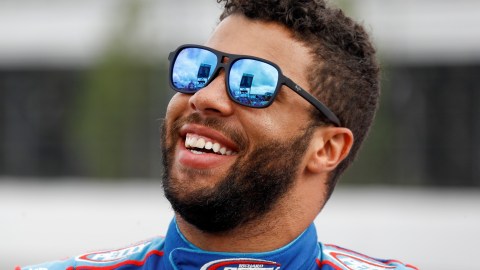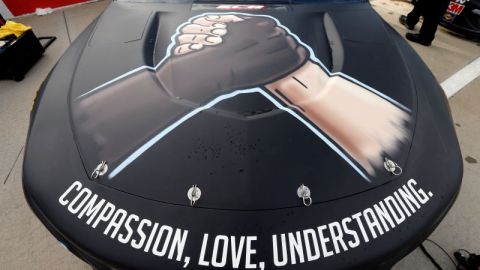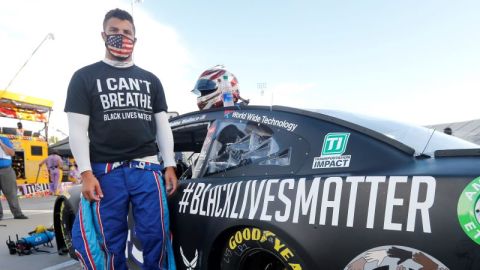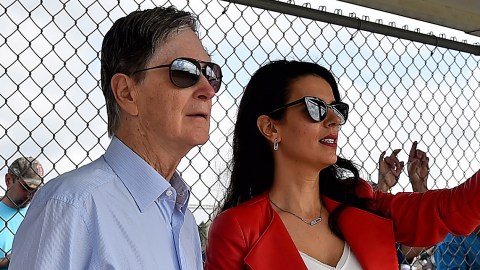 BOSTON — There sat Jeff Green, feet plunged in ice,
BOSTON — There sat Jeff Green, feet plunged in ice,
plotting the demise of the Boston Celtics from his cubby in the corner of the
locker room. He was so nefarious, cracking jokes with teammates as though it
were the most innocent thing in the world, all the while hiding his role in the
downfall of the winningest organization in the NBA.
If Green comes across as just some 26-year-old forward
trying to work his way back from surgery to correct an aortic aneurysm in his
heart last January, then you have been drawn in by his charms. We know this
because Green, an adequate athlete at best with marginal basketball skills, bamboozled
the normally savvy Danny Ainge into granting him a four-year, $36 million
contract this summer to ruin what was otherwise a sterling offseason for the
Celtics president of basketball operations.
At least, that is the image of Green cast by a sea of
disapproving experts.
Green has been called this year's worst free-agent signing
by more than one observer in a bold — yet dubious — claim given the list of
other players with comparable salaries. His average annual salary is on par
with the likes of Lamar Odom, who did not even last a full season with the
Mavericks; Caron Butler, who has battled injuries virtually from the moment he
was drafted by the Heat 10 years ago; Shawn Marion, who barely manages to score
in double digits nowadays; and Jeremy Lin, whose 35-game stint with the Knicks
was so groundbreaking that New York opted to replace him with Raymond Felton
and 39-year-old Jason Kidd.
In an offseason that saw those same Knicks give multiyear
deals to two different guys approaching the big 4-0, a young and versatile
combo forward who started at least 50 games every year entering last season
apparently was the summer's biggest swindle. Think about that.
That opinion is far different from the ones coming out of
the Celtics' training facility, where compliments over Green's play in the preseason
have reached a deafening pitch. Celtics coach Doc Rivers singled out Green as
the lone player who truly stood out during the eight-game exhibition slate, not
that Rivers was issuing any sort of news flash to anyone who watched Green's
exploits. The first couple of performances, in Istanbul and Milan, were rightly
taken with a grain of salt. As the preseason progressed, though, and Green
played more minutes against real, live NBA rotation players, none of the
initial flash wore off. The worst free-agent signing of the offseason was also
the Celtics' best player on most nights.
"Jeff's
a lot more aggressive than I can remember," said Kevin Garnett, who knows
a lot about crazy salaries, having made more in his 17-year career than any
other player. "I can remember when he first got here, maybe he
was just understanding his role or whatever, but at times he was tentative.
"Now I think he has a different appreciation and he's
playing like it. He's playing like he knows he's going to be here. He
understands his role. He's aggressive. We're going to need that. I think he has
an old-school game, James Worthy-like. To see him back, see him refreshed and
doing the things he loves to do is good, so I'm happy for him."
The most ardent critics of the Green signing come from the
advanced statistics crowd. Relative to their cousins in the baseball universe,
this is still a nascent group in basketball circles, but one that is gaining
favor due to making some really strong, cogent points. Offensive and defensive
rating, which measure the rate of at which a player creates and allows points
per 100 possessions, probably are the single best identifiers of how a certain
player affects his team's fortunes. Advanced statistics have helped us confirm
our suspicions that reckless hustle players often hurt their own teams more
than they help, or that teams can contend for championships with a strong
defense and a weak offense, but not vice versa.
By most of these advanced measures, Green is either average
at best or just plain bad. His career player efficiency rating of 12.8 is well
below a so-called league average mark of 15.0. His rebounding rate is mediocre
for a forward. In 2010-11 he made the Thunder and Celtics worse on both offense
and defense, statistically, when he was on the court. On paper, that is not a
good look for Green.
Truth be told, Green is not going to be an All-Star this
season, in all likelihood. He is not a No. 1 scoring option (nor is he being
paid like one) and he is not strong enough physically to corral LeBron James
all by himself in a probable Eastern Conference Finals matchup.
Yet what many of the true believers in the advanced
statistics clan overlook, like many amateur scientists in other realms, is that
numbers are often mistaken — or at least that they sometimes fail to account
for certain things. The real geniuses recognize this, which is why Albert
Einstein went to his grave believing his general theory of relativity was wrong. Even
though his equation worked mathematically, he saw enough evidence in other
people's research and in the world around him to convince himself that he must
be missing something.
We see this inconsistency in baseball, where Ultimate Zone
Rating inexplicably has told us that Jacoby Ellsbury and Andrew McCutchen are
poor defensive outfielders. We see this in football, where a quarterback who
completes 100 percent of his pass attempts might still achieve something less
than a "perfect" passer rating. We have seen this in basketball,
where the sport's first attempt at an advanced metric — originally dubbed
"efficiency rating" — is now widely ignored by both casual fans and
hardcore statisticians.
Green is no superstar (we repeat, nor is he being paid like
one) and nobody should declare the entire system of statistical analysis faulty
simply because it occasionally makes a perfectly fine player like Green look
terrible while making an adequate player like Ryan Anderson look like an MVP
candidate.
To the naked eye, though, Green has played pretty dang well
despite not playing an NBA game in almost 17 months. His teammates and coaches
lauded his performance, and not just because merely being back on the court is
a triumph for him. The only person who seems to agree with the critics, in
fact, is Green himself.
"I think he was being nice," Green said in
response to Rivers' praise. "I'm very hard on myself. I feel I could have
done a lot more. I could have done better on defense. As far as team-wise, I
think I had some lapses during the preseason. I mean, this was a good start to
my comeback and my whole journey back to playing again. I'm grateful for
everything that's happened this preseason. I'm never content with what I did. I
still have some room for improvement."
And
then Green mocked his own conditioning, complimented the play of rookie Kris
Joseph and tossed a joking Bad Boys
reference at Courtney Lee. If someone did not know any better, Green came
across as just another innocent guy playing basketball, and playing it fairly
well.
Have a question for
Ben Watanabe? Send it to him via Twitter at @BenjeeBallgame or send it here.



